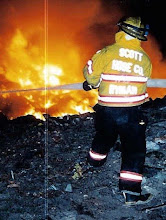Any writer will acknowledge a fondness for words, and I am no exception. Recently, I started reading a great book on military education, America’s School For War, by Peter Schifferle, and was struck by an obvious point on how firefighters use military terminology. We regularly use words such as offensive, defensive, strategy, tactics, attack, commander; the list seems endless.
Change just a couple words from a quote from 1919, and it sounds like something from any fire officer training class today.
“A commander on the battlefield (fire ground) confronted with an emergency or special situation, or an officer given a tactical problem to solve in the classroom, in order to arrive at a sound tactical decision and to initiate the necessary steps to carry that decision into effect, must go through a certain well defined mental process, which includes a consideration of his task, the obstacles to be overcome, and the means at his disposal for overcoming these obstacles.”
This history geek in me enjoys things like this, and closing in on the 70th anniversary of Pearl Harbor is a good time to reflect on the phraseology used in our para-military structure.
These are by far, not the only words we use as our own colloquialisms have been developed. Slang terminology, some well known and others more regional, such as job, bus, stick, nob, probie, johnny, Loo, Cap, and wagon; this list goes on and on as well. These are fun and special, and give tradition and soul to a department. One component of the wonderful world of NIMS was designed to standardize terminology, a worthwhile goal in some respects, but I hope it never steals the soul from the business.
Subscribe to:
Post Comments (Atom)




No comments:
Post a Comment